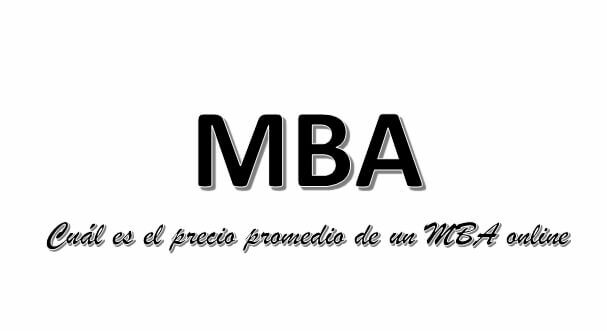Currently, many countries have been able to pass to phase 2 of the quarantine caused by the Covid-19, but there are still many doubts about it. One of the questions that is attracting the most attention is about the sanitary and preventive measuresfor restaurants, who have been able to attend the public again.
While the situation is beginning to improve gratifyingly for many, there are still risks to workers and consumers, this is why many governments have implemented certain considerations that bars and restaurants they must have to be able to reopen their doors.
Advertisements
Little by little the food industry is preparing for the new normal that we must face, both owners, workers and consumers. In the post that we present below, we will explain to you what are the measures and preventions that must be observed in these cases.

Advertisements
In this article you will find:
Why should these requirements be followed in restaurants and bars to combat the coronavirus?
When starting a phase 2 of the pandemic quarantine and allowing people to attend public meetings again this question arises. Risks have decreased dramatically in some countries, but the possibility of contagion and, therefore, a rollback to phase 1 remains.
This is the main reason to keep certain sanitary measures, keeping risk management to a minimum without continuing to affect the country's economy. Preventive conditions that have been administered by various governments are regulated under direct requests and recommendations from the World Health Organization.
Advertisements
These requirements apply to restaurants, bars, cafeterias and any premises where activities of food preparation, both for facilities and staff, but this does not mean that consumers are exempt.
General recommendations for cleaning and disinfection of facilities
The restaurants They are places where contact with the implements is constant and unavoidable, for this reason organization and constant cleaning must be maintained on the surfaces that are most frequently touched.
Advertisements
Physical spaces must be properly disinfected, with special emphasis on removing microorganisms (which includes viruses such as Sars-Cov-2) and dirt in the parts where consumers have had more contact, such as tables, chairs and especially food and drink implements since they have direct contact with fluids.
Cleaning must be wet at all times, it is important to avoid the use of any type of element that promotes mobilization powder, in the same way detergents or other liquid agents must be prepared at the time of disinfection and not previously.
Advertisements
Before consumers can have access to the premises, a thorough cleaning of the premises must be done, the correct way to do so is starting with the cleanest area, moving to the one that corresponds to the highest risk of contagion, the order must be the following:
Little or no contact surfaces:
- Baseboards and floors.
- Walls.
- Ceilings
- Doors.
- Windows.
High contact surfaces:
- Bathrooms with their implements.
- Phones.
- Light keys.
- Door handles.
Warning
Mixing detergents or other similar chemicals with sodium hypochlorite (bleach) because they generate toxic fumes that can irritate or affect the respiratory tract of those who are nearby.
The preparation of the recommended 1% solution should be made under the following formula:
- 50 ml: 5 liters of water + ½ cup of bleach (also called chlorine).
- 100 ml: 10 liters of water + 1 cup of bleach.

What measures to adopt to provide a good service to face this pandemic?
All establishments that want to open regularly must undergo a series of strict measures, these are quite widespread in all countries since they have been created based on the recommendations of international health institutions.
Must be fulfilled exclusively to count on the opening permits. The precautions that must be taken into account are these:
- Daily, before opening the doors of the restaurant, it is necessary to carry out the corresponding cleaning work of the entire establishment, including the ventilation ducts.
- The supply of washing and disinfection supplies must be guaranteed by the establishment for each of the consumers.
- The place must have natural ventilation.
- Continuous cleaning and disinfection must be performed. Every table, chairs and other implements used by both consumers and employees must be disinfected after one use.
- Much attention must be paid to cleaning public areas such as toilets, where it is necessary to avoid the use of cloth towels, these should be replaced by disposable towel dispensers of paper.
- Avoid using items that are complicated to clean properly.
- Reusable items such as condiments, menus, or napkin or food containers should be limited or eliminated.
- Contactless payment methods must be enabled and used as the main alternative.
- Both tableware and utensils for consumption must be disposable. If this is not possible, they should be handled with gloves and properly disinfected before they can be used the next time.
- Water systems, such as taps or toilets, must be disinfected every 20 minutes when there are consumers in the room.
- The tasting of food or drinks is totally forbidden.
- Children's play areas or bar rooms are completely disabled until the government announces less restrictive measures.
- The local staff must ask customers to sanitize their hands before and after consuming food and have contact with any part of the facilities.
- All supplies corresponding to table service must be provided to customers at the time, that is, they cannot be on the table previously.
- Minimize interaction between diners as much as possible. the tables must have a distance of at least one and a half meters from each other, and there can be no more than 3 or 4 chairs per table.
- The venue must be responsible for offering alcohol in the gel to customers when entering the venue in order to disinfect their hands.
What measures should the staff have?
Clearly the staff must also implement preventions in order to provide a good service and that this is completely safe, reducing the risk of infection for themselves and for children. customers:
- Workers must wear a mask and gloves at all times.
- There should be no more than 2 people in the same area. While this may delay service, it is the safest way to handle personnel without excess contact and maintaining the minimum required distance.
- Tasks must be pre-planned to avoid contact between employees and ensure that disinfection times are met.
- Before starting the working day, the temperature of the employees should be taken.
- Time control methods must be disinfected before being used, or alternatives must be sought if they cannot.
- Assess the work environment of employees in vulnerable conditions.
- In case of suspicions of contagion between employees or a consumer, the corresponding numbers should be called immediately and inform the authorities of the problem.
The objective of these security measures is to once again guarantee the economic progress of the establishments and businesses of food, managing the service correctly to avoid the risk of contagion and increase the spread of virus.
We want to give you a testimony of a patient with Covid19, which is in a quarantine state and where its health is being tirelessly monitored.
What are restaurants and bars doing today?
- Acrylic partition to separate.
- Capacity limitations. In Spain, for example, in phase 2, up to 40% of the establishment limit and terraces up to 50% are allowed.
Source: https://www.cdc.gov/coronavirus/2019-ncov/community/organizations/business-employers/bars-restaurants.html


